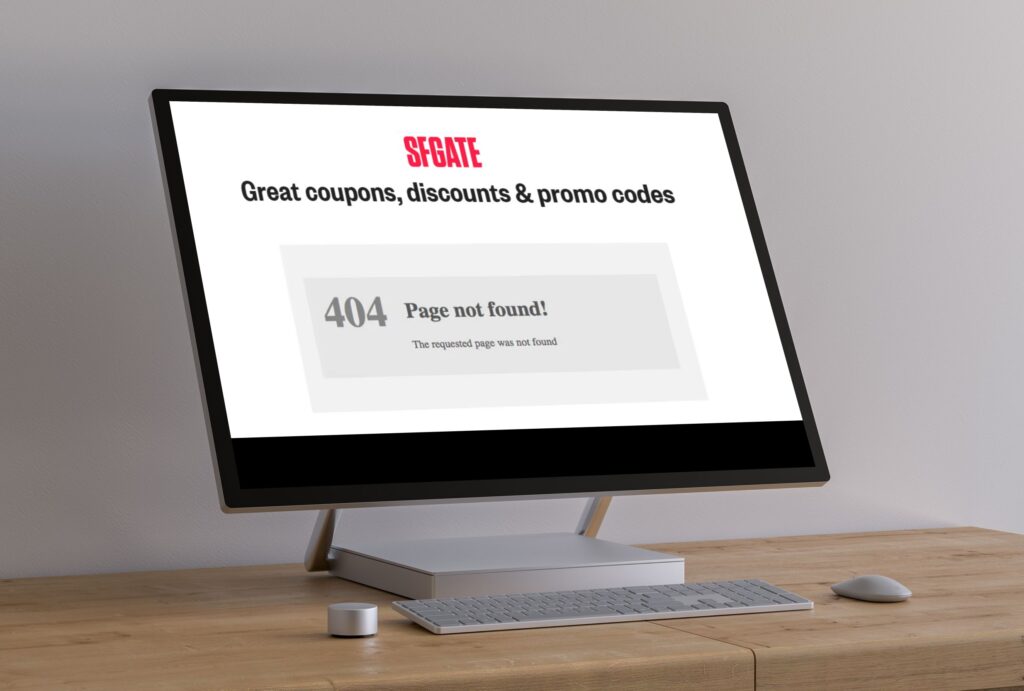
Several news websites want you to know that, when they’re not busy delivering the latest headlines, they’re extremely involved in hand-selecting the very best coupon deals to help you save money.
Others, meanwhile, have simply given up and gotten out of the coupon business altogether.
As of yesterday, Google has now fully rolled out its new spam policy, which aims to penalize websites that try to earn cheap clicks by promoting coupons provided by third parties. Since Google announced its updated policy back in March, websites have been scrambling to comply with the new rules, lest they get punished or delisted by the world’s largest and most influential search engine.
The Los Angeles Times, Wired and Time are among the sites that are now going above and beyond to show they’re doing much more than merely posting coupons for clicks. Forbes, and Hearst Communications’ San Francisco-based news site SFGate, meanwhile, have done the opposite, attempting to comply with the new rules by completely shutting down their coupon pages.
Part of Google’s new policy targets “sponsored, advertising, partner, or other third-party pages that are typically independent of a host site’s main purpose or produced without close oversight or involvement of the host site, and provide little to no value to users.”
Many websites read that as potentially pertaining to them. A number of news websites that have nothing to do with coupons or shopping or saving money, host sections on their sites devoted to online coupon codes. If you Google for a coupon from a particular retailer, you’re as likely to get results from a dedicated coupon site like RetailMeNot or Capital One Shopping, as you are from a news website like the Washington Post or Business Insider.
And that’s no accident – these sites already rank highly in Google search results, so they’ve sought to leverage their popularity by partnering with third-party coupon companies. If you search for a coupon, one of these news sites might be among the first results in a Google search. If you click on it, the news sites get visitors, plus a commission if you use any coupons you find there, the coupon provider gets a commission of its own from its retail partners, you save money, and everyone wins.
Except Google decided it no longer took too kindly to this manipulation of its search results. Unless, that is, coupons “are listed with close involvement of the hosting site.” If the website “is actively involved in the production of the coupon area, there’s no need to block this content from Google Search,” the new rules explain. “Readers should clearly understand how the publication sources its coupons and how it works to ensure that the coupons provide value to readers.”
So several sites are now only too happy to tell you just how actively involved they are in curating coupons and providing value to their readers. The L.A. Times, Wired and Time, all of which are partnered with the coupon provider Savings United, have added elaborate pages to their sites, inviting you to meet their dedicated “coupon teams.” They feature names, headshots and bios of their “quality supervisors,” each of whom “carefully reviews each coupon and hand-picks the ones they believe are the most valuable to our audience.” While Savings United provides the coupon content, each site assures visitors – and Google – that “editors, content producers, and dedicated commerce staff” are responsible for the content found in their respective coupon sections.
Other news sites, which work with other coupon providers, have added florid explainers of their own in an attempt to show their coupons are not some scam, but an integral part of their editorial mission. Glamour, affiliated with the coupon provider Webgears, now assures readers (and Google) that “we started sharing promo codes with you… as a natural extension of all of the sales coverage we do.” Fortune, affiliated with NextGen Shopping, says its “editorial staff are deeply involved in selecting the categories and brands that appear on Fortune Coupons.” And the Daily Beast, which partners with coupon provider TSG Commerce, is forthcoming in saying that coupons help pay the bills, which helps it cover the news. “When we receive a commission,” the site explains, “it supports The Daily Beast journalism and enables us to keep writing helpful content.”
Forbes, in contrast, has completely eliminated its coupon site. Before doing so, the site featured a disclaimer saying that “retailers listed on this page are curated by a third party. Forbes editorial staff is not involved.” That’s precisely the kind of hands-off approach that Google’s policy update aims to combat. SFGate, too, removed its coupon site rather than complying – or risking not complying – with Google’s new rules.
So if you Google for a coupon from your favorite retailer, and you get results from a site like Time, Glamour or Fortune, then their updates must have worked – by explaining in thorough detail just how deeply involved they are in selecting coupons just for you, it would appear they’ve avoided Google’s threatened penalty. If, however, Google finds their explanations unconvincing, these sites might want to stick to news, and leave the coupons to actual coupon sites. Google’s goal is to keep websites from trying to use coupons to game the search system – but if these workarounds work, these news sites just might have found a way to continue the game for some time to come.
Image source: Mockupr










